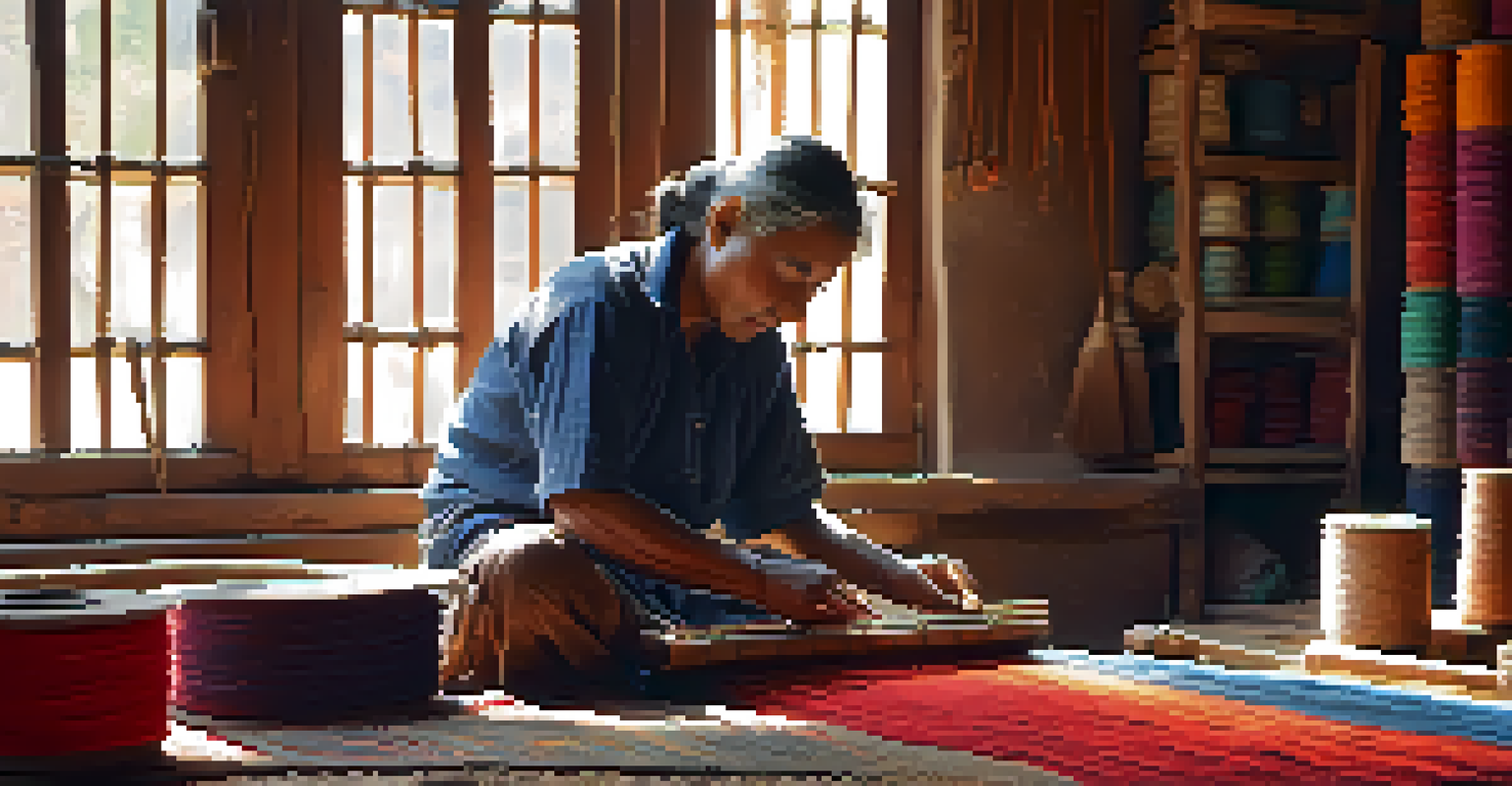Community Engagement: Fashion Brands Making a Social Impact

The Rise of Socially Conscious Fashion Brands
In recent years, we've seen a transformation in the fashion industry, where brands are prioritizing social responsibility. This shift is not just a trend; it's a movement driven by consumers who are increasingly aware of the impact their purchases have on the world. Brands now recognize that they can no longer operate in a vacuum—they must engage with their communities and contribute positively.
Fashion is the armor to survive the reality of everyday life.
Take, for example, brands like Patagonia, which not only focuses on sustainable materials but also actively participates in environmental advocacy. Their commitment goes beyond selling products; they aim to foster a culture of environmental stewardship among their customers. This kind of engagement creates a loyal customer base that shares similar values.
Moreover, this emphasis on social consciousness is reshaping consumer expectations. Shoppers are not just looking for stylish clothing; they want to support brands that align with their personal beliefs. As a result, companies that are transparent about their practices and community involvement are likely to stand out in a crowded marketplace.
Building Community Through Collaborative Initiatives
Collaboration is key when it comes to community engagement. Many fashion brands are partnering with local organizations and nonprofits to create initiatives that benefit their communities. For instance, some brands have launched programs that provide job training for underserved populations, helping individuals gain skills and find employment in the fashion sector.

These partnerships not only help address social issues but also enhance the brand's reputation. Consumers appreciate brands that take proactive steps to make a difference, and they are more likely to support those that demonstrate a genuine commitment to social change. This creates a win-win situation where both the community and the brand thrive.
Fashion Brands Embrace Social Impact
Many fashion brands are shifting towards social responsibility, engaging with communities and aligning with consumer values.
Additionally, community-focused collaborations can lead to innovative product lines that reflect local culture and needs. By involving community members in the design process, brands can create unique offerings that resonate with their target audience, fostering a sense of pride and ownership among consumers.
Sustainable Practices and Ethical Production
Sustainability and ethical production are at the heart of many fashion brands' community engagement efforts. By focusing on environmentally friendly materials and fair labor practices, these brands not only minimize their environmental footprint but also support the well-being of workers. This commitment to ethical production resonates with consumers who are increasingly concerned about the origin of their clothes.
The best way to predict the future is to create it.
For instance, brands like Everlane have made transparency a core part of their business model, openly sharing details about their factories and the costs involved in producing their clothing. This level of transparency builds trust with consumers and encourages them to make more informed purchasing decisions.
Moreover, sustainable practices can lead to meaningful conversations around environmental issues within communities. Brands that actively promote eco-friendly initiatives can inspire their customers to adopt more sustainable lifestyles, creating a ripple effect that extends far beyond the fashion industry.
Empowering Local Artisans and Creatives
Many fashion brands are recognizing the importance of supporting local artisans and creatives as part of their community engagement strategies. By collaborating with local craftsmen, these brands can preserve traditional techniques and provide economic opportunities for skilled individuals. This not only enriches the brand's offerings but also strengthens community ties.
For example, luxury brands that source handmade textiles from local artisans not only support traditional crafts but also create a unique story behind each product. Consumers are drawn to these narratives, as they add depth and authenticity to their purchases. This connection to local culture can significantly enhance a brand's image and appeal.
Collaboration Fuels Community Growth
Partnerships with local organizations enable fashion brands to address social issues while enhancing their reputation.
In this way, brands are not just selling products; they are also promoting cultural heritage and fostering a sense of pride within communities. By empowering local artisans, fashion brands contribute to the preservation of unique crafts and stimulate local economies.
Fashion as a Platform for Social Advocacy
Fashion has long been a powerful medium for social advocacy, and many brands are using their platforms to raise awareness about critical social issues. From promoting body positivity to advocating for LGBTQ+ rights, fashion brands are challenging societal norms and encouraging conversations that matter. This form of engagement allows brands to connect with consumers on a deeper level.
Consider brands that feature diverse models and inclusive campaigns—these initiatives not only celebrate individuality but also empower marginalized communities. By creating representation in their marketing, brands can help foster a more inclusive society while also appealing to consumers who value diversity.
Ultimately, leveraging fashion for social advocacy can drive meaningful change. Brands that take a stand on important social issues demonstrate their commitment to making a difference, which can inspire consumers to join the cause and support brands that align with their values.
Consumer Engagement: The Power of Community Feedback
In the age of social media, consumer feedback has become a crucial aspect of community engagement for fashion brands. Brands are increasingly turning to their audiences to gather insights and understand how they can better serve their communities. This open line of communication fosters a sense of belonging and loyalty among consumers.
Brands like Nike have successfully utilized social media platforms to engage with their customers, encouraging them to share their experiences and opinions. By actively listening and responding to feedback, these brands can make informed decisions that resonate with their audience and adapt to their needs.
Sustainability Drives Consumer Choices
Consumers increasingly favor brands that prioritize sustainable practices and ethical production, reflecting a growing awareness of their purchasing impact.
Moreover, incorporating consumer feedback into product development and marketing strategies can lead to more relevant and impactful offerings. When customers feel heard and valued, they are more likely to become brand advocates, spreading the word about the positive changes being made within the community.
The Future of Community Engagement in Fashion
As we look to the future, community engagement will likely continue to play an integral role in the fashion industry. Brands that prioritize social impact and sustainability will be better positioned to thrive in an increasingly competitive market. This evolution reflects a broader societal shift towards mindfulness and responsibility in consumer behavior.
Emerging technologies, such as blockchain and AI, can further enhance community engagement by fostering transparency and accountability in the supply chain. Brands that leverage these tools can provide consumers with more information about their products, enabling them to make more ethical choices.

Ultimately, the future of fashion will likely be defined by brands that not only sell stylish clothing but also embody values that resonate with consumers. The commitment to community engagement and social impact will be essential for brands seeking to build lasting relationships with their audiences.